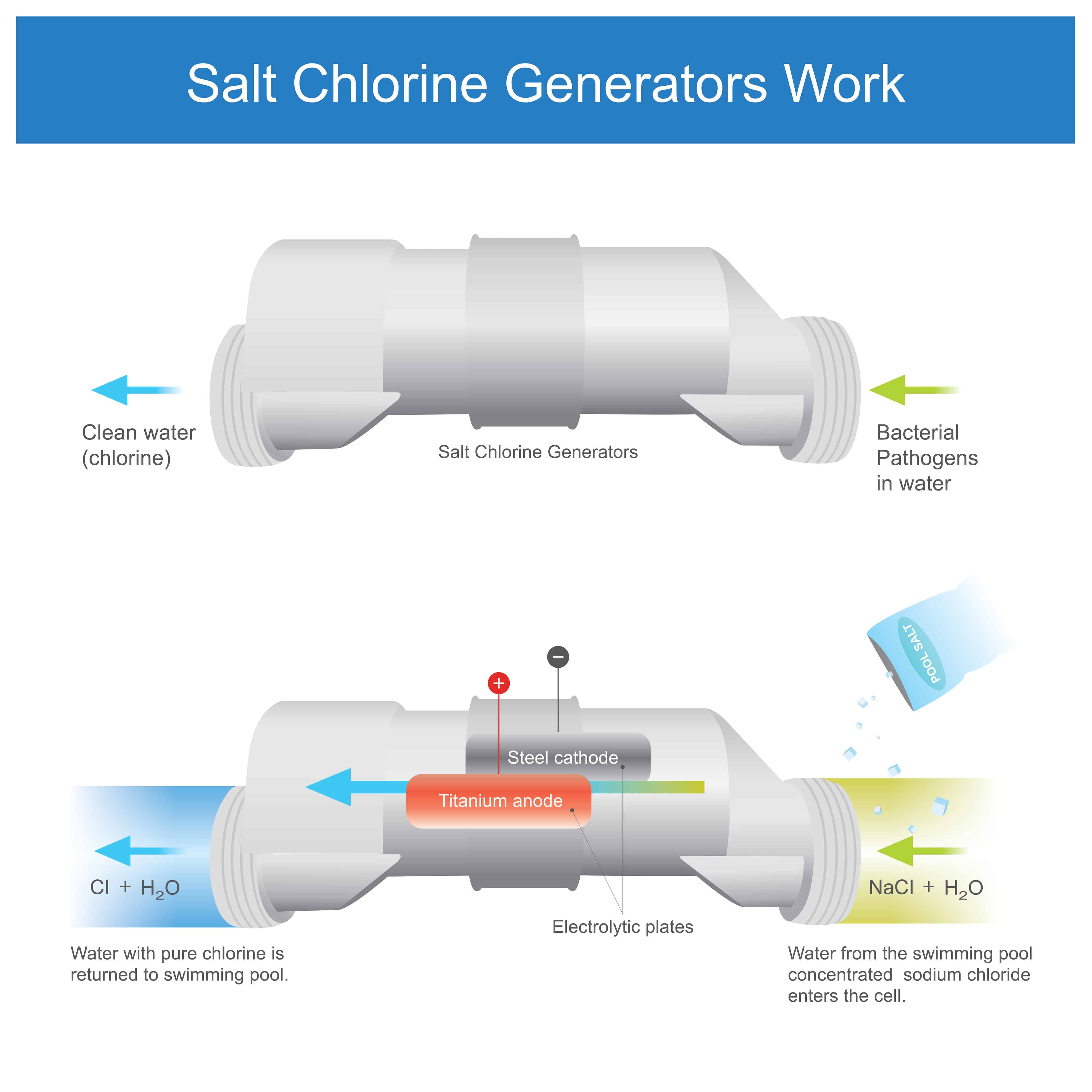Owning a salt water pool can be a great option for any homeowner. Not only does it provide a more comfortable swimming experience, but it also offers a number of benefits over traditional chlorine pools, including lower maintenance and operating costs.
A key component of any salt water pool system is the salt cell. This device is responsible for converting salt into chlorine, which helps keep the water clean and clear.
In this post, we’ll provide you with some tips and tricks for maximizing the lifespan of your salt cell, so you can get the most out of your investment.
Keep the Salt Cell Clean
The first and most important step in maintaining your salt cell is keeping it clean. Over time, minerals and other deposits can build up on the surface of the cell, which can inhibit its ability to generate chlorine. To prevent this buildup, you should regularly inspect the cell and remove any debris or buildup with a soft brush or sponge. Follow salt cell manufacturer instructions carefully so you don’t damage the cell with harsh cleaning or by using the wrong technique.
Some salt cells also come with a self-cleaning feature that uses reverse polarity to clean the cell automatically. This feature typically works automatically so you don’t have to do anything but check your product manual to be sure.
Monitor Proper Water Chemistry
Another key factor in maximizing the lifespan of your salt cell is maintaining the proper water chemistry. If the pH, alkalinity, or calcium levels are too high or too low, it can cause the cell to degrade more quickly. To prevent this, you should regularly test your water and make any necessary adjustments.
Aim for a pH level between 7.2 and 7.8, alkalinity between 80 and 120 ppm, and calcium hardness between 200 and 400 ppm.
Check And Maintain Proper Salt Level
The salt cell in your pool requires a certain level of salt to operate effectively. If the salt levels are too low, the cell will not be able to generate enough chlorine to keep the water clean.
Conversely, if the salt levels are too high, it can damage the cell and reduce its lifespan.
You should regularly test your salt levels and aim for a range of 2700 ppm to 3400 ppm unless instructed otherwise.
Use A Solar Pool Blanket
Using a pool cover when the pool is not in use can help reduce the amount of debris and minerals that get into the water. This, in turn, can help reduce the amount of buildup on the salt cell and extend its lifespan.
The pool cover can also help to protect the chlorine that is in the pool. A quality pool cover can help to protect the water from the harsh direct rays of the sun which kills chlorine. The less chlorine you have to replace can lead to an increase in the lifespan of the salt cell.
Hire a Pool Maintenance Professional
If you are unsure about how to properly maintain your salt cell, it’s always a good idea to hire a professional. A pool service technician can inspect your salt cell, perform any necessary maintenance or repairs, and provide you with advice on how to keep your system running smoothly.
Again, if your chlorinator has the reverse polarity feature that self cleans it, you won’t need to do anything in that regard as the cleaning is done automatically as needed.
Properly Store The Salt Cell in Winter
Taking the salt cell inside and storing it in the warm dry environment is your best bet. This is especially true when you live in a northern hemisphere zone with frigid winters. Salt cells are expensive and there is no need to leave it outside when the pool season is over since the pump isn’t operating anyways.
Store the cell indoors where it’s safe from freezing cold temperatures, ice and snow.
Final thoughts
By following these tips, you can help extend the lifespan of your salt cell and ensure that your salt water pool remains clean and clear for years to come. Remember to keep the cell clean, monitor water chemistry and salt levels, use a pool cover, and hire a professional if you need assistance.
By taking these steps, you can get the most out of your investment and enjoy your salt water pool to the fullest.
Have you heard of a pool product called Salt Water Magic, specifically aimed at salt water pools? It might be worth considering to help extend the life of your salt cell in addition to helping with algae prevention.

